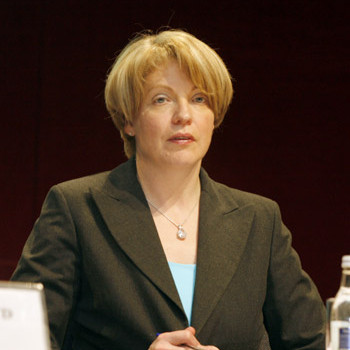News briefs: Tánaiste meets IBEC food agency

Tánaiste Mary Coughlan met FDII about Irish grocery prices; cereal prices are set to fall; and commodity costs are coming down yet food prices remain high
9 March 2009
Tánaiste meets IBEC agency to discuss Irish food prices

Tánaiste Mary Coughlan
Last month, Tánaiste and Minister for Enterprise, Trade and Employment, Mary Coughlan TD, met with IBEC’s food and beverage agency, Food and Drinks Industry Ireland (FDII), as part of her ongoing investigation into Irish grocery prices.
FDII says it
highlighted in the meeting some of the difficulties food suppliers face in the current climate but that it is “fully committed to ensuring that there is a balanced relationship between all players in the food and drink industry.”
The Tánaiste told the industry body it is important that all links in the retail chain play their part to ensure the greatest degree of transparency, so as to reveal the reasons for the current north-south price differential. The meeting took place as part of the Tánaiste’s ongoing investigation to bring about greater clarity in this matter.
Cereals prices to fall
The UN Food and Agriculture Organisation expects cereal prices to come down in 2009, as current production far outweighs projected global demand.
“The sharp increase in world cereal production in 2008 has paved the way for a recovery in global cereal supply and demand balance in the 2008/09 marketing season,” says the latest FAO crop report. Yields this year are forecast to increase world grain stocks to their highest since 2002.
In spite of these trends, wheat and maize prices actually increased in January, as did rice rise 59% on the previous year. However, with record production this year the FAO says diminished grain stocks will now recover in most major exporting regions, particularly the EU where maize and barley production has made a good recovery.
This combined with the expected contraction in world cereal trade (approx 3.6% decline) should see prices coming down by the second half of 2009.
Commodity cost down food prices stay high
Although the cost of commodities has been falling since last year, global food prices are not responding as quickly, according to a report by food and agribusiness lender Rabobank.
Increased food prices around the world have not eased with the drop in costs for agricultural and oil-derived products, which fell for the last six months of 2008, but in fact increased during the same time. Rabobank’s February agribusiness review revealed that retail costs of food remain high or are adjusting only slowly in most countries.
“Agricultural commodity costs have fallen, plastics pricing has started to ease and distribution costs will fall in line with fuel prices. Weak demand conditions will also encourage retailers and processors to reduce prices to keep product moving,” the report added.



 Print
Print






Fans 0
Followers